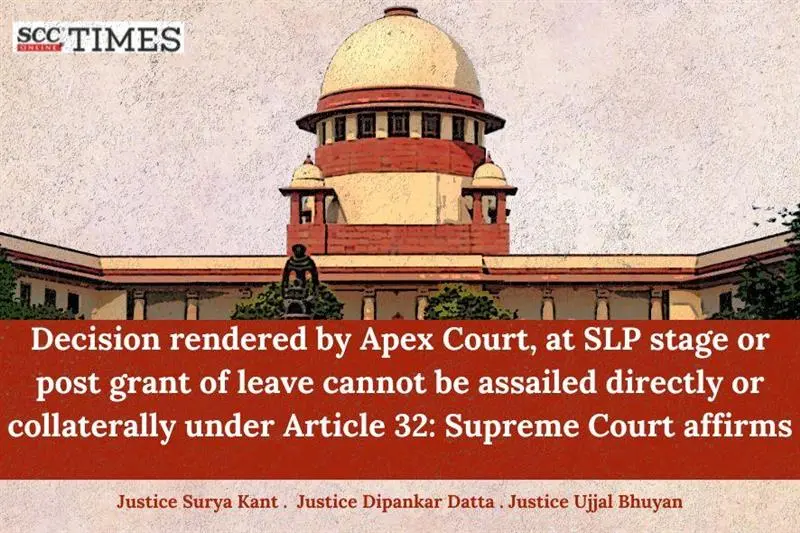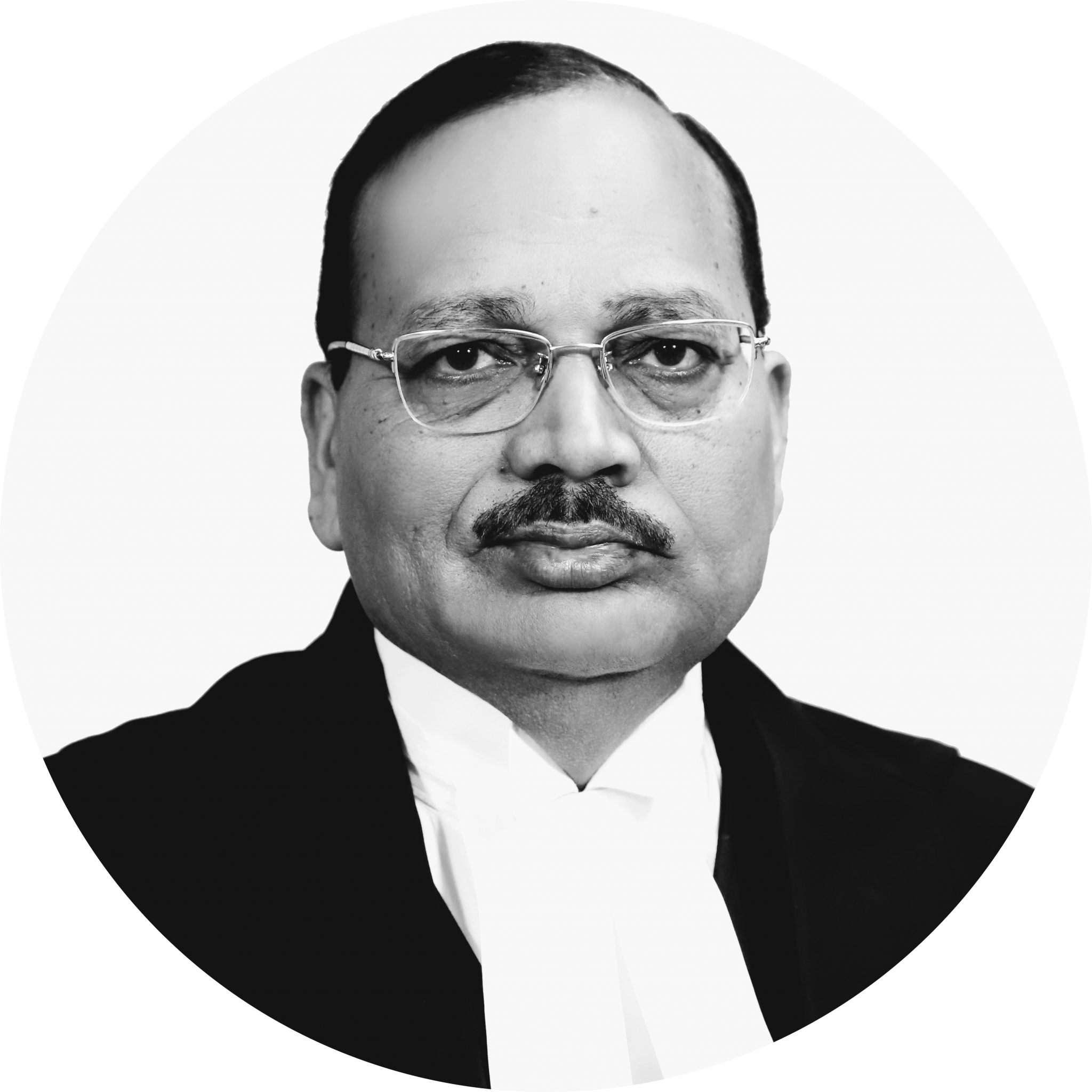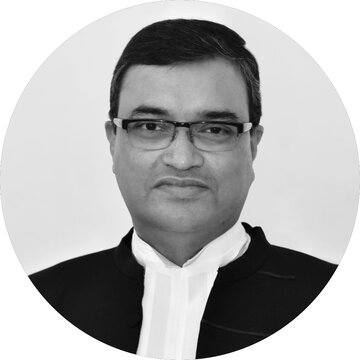Supreme Court: In a petition filed by retired officers of the Himachal Pradesh State Forest Development Corporation Limited (‘the Corporation’), challenging the denial of pensionary benefits under the Himachal Pradesh Corporate Sector Employees (Pension, Family Pension, Commutation of Pension and Gratuity) Scheme, 1999 (‘Scheme 1999’), a Three-Judge Bench of Surya Kant, Dipankar Datta and Ujjal Bhuyan*, JJ. held that the present writ petition filed under Article 32 of the Constitution of India is entirely misconceived and devoid of merit. The Bench, after careful examination, stated that the issues raised had already been fully adjudicated in State of H.P. v. Rajesh Chander Sood, (2016) 10 SCC 77, a binding precedent on the present petitioners. Reasserting the principle of finality in litigation, the Court reiterated that a decision rendered under Article 136 cannot be re-agitated through a writ petition under Article 32.
Background
The Scheme 1999 was discontinued via a State notification dated 02-12-2004. The petitioners sought direction for payment of pension on par with similarly situated employees who had retired prior to the scheme’s withdrawal, urging that their pensionable service be counted from the date of joining until their superannuation.
The issue of denial of pensionary benefits under the Scheme, 1999, was earlier raised before the Himachal Pradesh High Court through a series of writ petitions filed under Article 226 of the Constitution of India. The High Court, in its judgment directed the State to extend pensionary benefits to the retired employees of the Corporation in accordance with the said scheme.
However, this decision was subsequently reversed by a Two-Judge Bench of the Supreme Court in Rajesh Chander Sood (supra), wherein the Court upheld the State’s withdrawal of the pension scheme for post-2004 retirees.
Dissatisfied with that ruling, the present writ petition has been filed directly before the Supreme Court, once again seeking parity in pensionary benefits. One of the principal arguments advanced is that the decision in Rajesh Chander Sood (supra) was rendered per incuriam, having allegedly failed to consider several binding precedents of the Court, thereby warranting reconsideration by a larger Bench.
Analysis and Decision
The Court noted that the Corporation was incorporated under the Companies Act, 1956 pursuant to a notification dated 26-03-1974 issued by the Government of Himachal Pradesh. It is completely owned and controlled by the State Government inasmuch as 100% of the share capital of the Corporation is owned by the State of Himachal Pradesh.
Addressing the petitioners’ contention that the decision in Rajesh Chander Sood (supra) was rendered per incuriam, the Court unequivocally rejected the argument. It held that a judgment cannot be labelled per incuriam merely because, in the opinion of the petitioners, the reasoning adopted therein may not align with certain earlier decisions. The Court emphasized that the doctrine of per incuriam is a well-established and narrowly defined exception and does not apply in the present case. The Bench categorically stated that the Rajesh Chander Sood judgment did not ignore any binding precedent and, therefore, could not be characterized as per incuriam by any stretch of interpretation.
The Court observed that the contentions now raised by the petitioners had already been advanced and adjudicated in the earlier case of Rajesh Chander Sood (supra). It held that the reliefs now sought are identical to those previously rejected, and it is not open to the petitioners to revive or re-agitate these claims through a fresh petition under Article 32 of the Constitution. The Court emphasized that once its earlier decision had set aside the Himachal Pradesh High Court’s judgment in P.D. Nanda v. State of H.P., 2013 SCC Online HP 5151, the claims of both the petitioners in that case and similarly situated employees, including the present petitioners stood conclusively negatived. Accordingly, any direct or collateral challenge to the decision in Rajesh Chander Sood (supra)is impermissible, and the present petition was held to be without merit.
The Court firmly reiterated that a decision rendered by it, whether at the stage of granting special leave or after leave is granted under Article 136 of the Constitution cannot be challenged either directly or collaterally by way of a writ petition under Article 32. The Court clarified that the appropriate remedy for an aggrieved party lies in invoking the review jurisdiction of the Court. Should the grievance persist even after review, the curative jurisdiction may be invoked, subject to satisfaction of the conditions governing such relief.
Stating that the current writ petition was “thoroughly misconceived,” the Court proceeded to dismiss it. In doing so, the Bench underscored the principle of finality in judicial proceedings, emphasizing that finality of a lis (legal dispute) is fundamental to the integrity and functionality of the judicial system. Reopening cases that have attained finality, especially through alternate constitutional routes, would undermine the sanctity of adjudication and lead to judicial chaos. Permitting such challenges, the Court warned, would erode public confidence in the justice delivery system and lead to unending litigation.
In conclusion, the Court held that the present writ petition filed under Article 32 of the Constitution of India is entirely misconceived and devoid of merit. The Bench, after careful examination, stated that the issues raised had already been fully adjudicated in Rajesh Chander Sood (supra), a binding precedent on the present petitioners. Reasserting the principle of finality in litigation, the Court reiterated that a decision rendered under Article 136 cannot be re-agitated through a writ petition under Article 32.
Accordingly, the writ petition was dismissed. However, taking into account the fact that the petitioners are retired employees and senior citizens, the Court exercised leniency and refrained from imposing any costs.
CASE DETAILS
|
Citation: Appellants : Respondents : |
Advocates who appeared in this case For Petitioner(s): For Respondent(s): |
CORAM :










